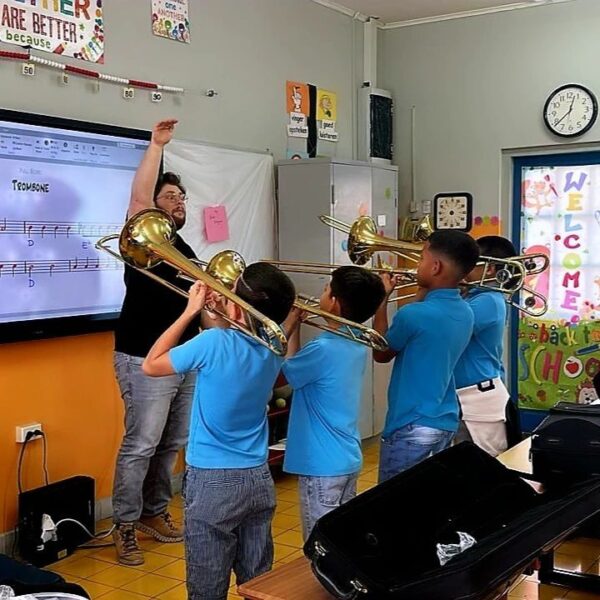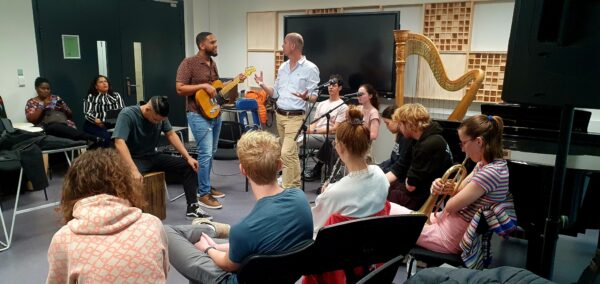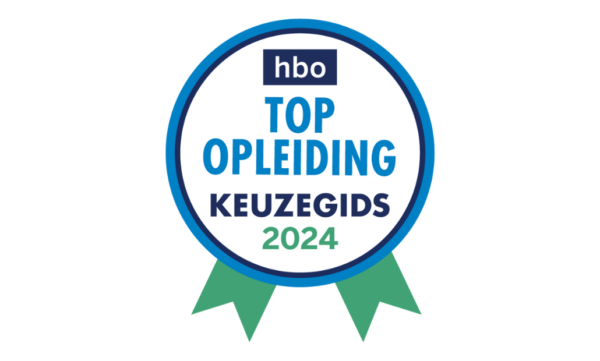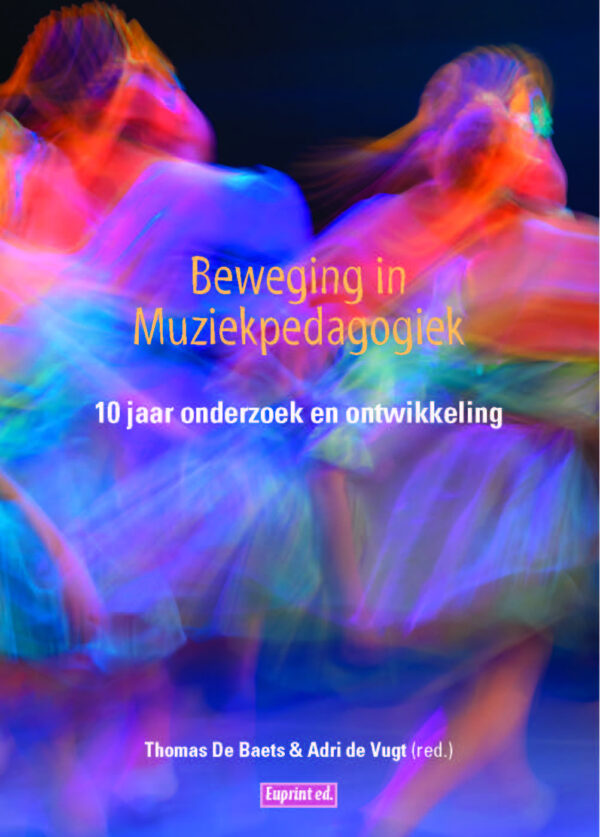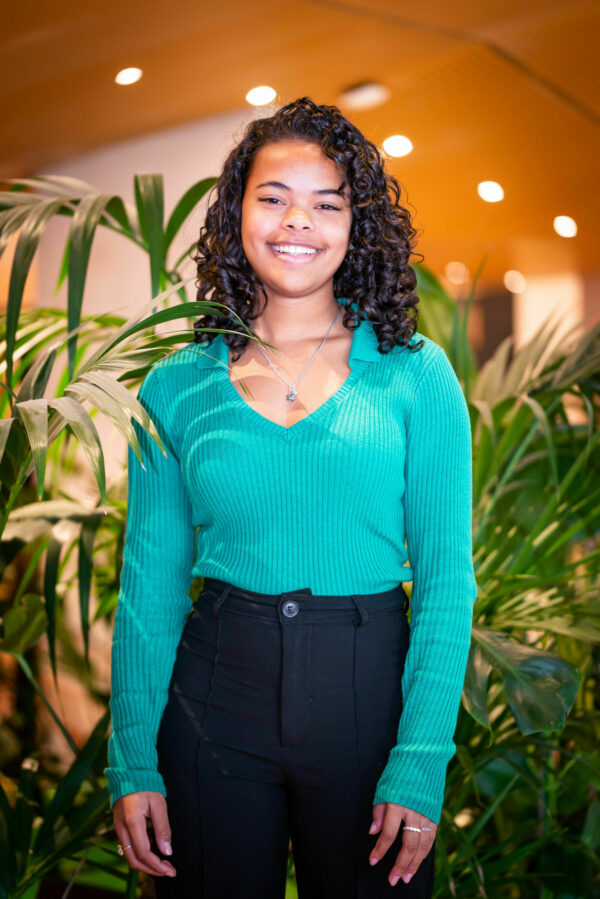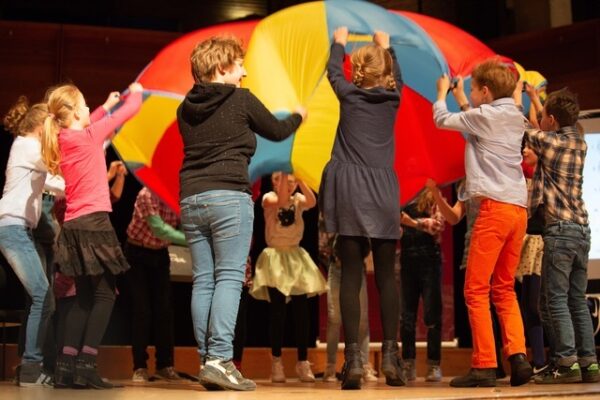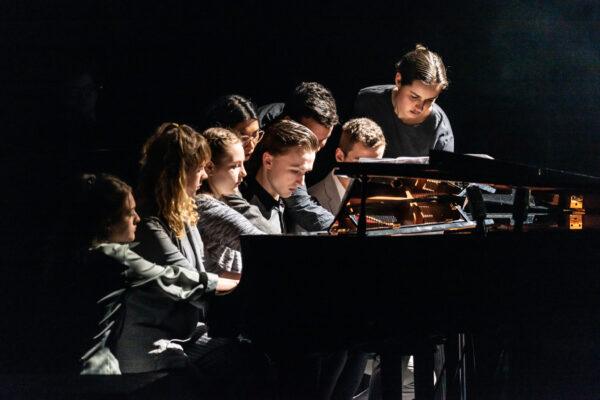The Agreement on the Teaching of Music will be signed on Wednesday 7 October next. The agreement seals a long-term partnership between the teacher-training colleges and conservatoires with the aim of improving the teaching of music. It marks a huge step towards music lessons for every child in every primary school in The Netherlands.
The partners in The Hague – the Royal Conservatoire and the teacher-training colleges for primary schools of The Hague University of Applied Sciences and Hogeschool Inholland – are also playing their part in promoting the goals of the agreement. We spoke to Margi Kirschenmann, the head of our Education department, about the importance of music education and the role it plays in the Royal Conservatoire.
Music education is a task of every musician
‘In principle, I feel that promoting music education and encouraging participation in music is a task of every musician. It can be done in a variety of ways. In modern professional practice the role of a performing artist will often be combined with the role of a teacher. When I was studying at a conservatoire (not the Royal Conservatoire) thirty years ago, I thought there were just two options. I could either have a career as a soloist or, if I was not good enough, I would become a teacher at a music school. In the latter case, I saw myself working in a boring environment where I would have to teach unmotivated children. During my studies – and in those days you could continue studying for a very long time – the conservatoire did nothing at all to alter that impression. But I discovered for myself that the opposite is true. That is why I am delighted that music in education is such a high priority at the Royal Conservatoire and that it is so deeply embedded in the curricula of the performing and creative departments.
I see it as one of the conservatoire’s tasks to provide students with the basic pedagogic skills, for teaching individuals and groups and preferably also in a social context. A lot has changed in the music profession and students must be prepared for the hybridisation of the professional practice. Just as the Royal Conservatoire regards it as important for a student of the Bachelor of Music in Education to develop artistically (the musician in the classroom), it also understands that the students in the performing departments need to acquire good teaching skills. But above all, that the students learn about the many opportunities that the music profession has to offer today, which is why we organise numerous field trips to professional organisations in the course of the programmes.
There are so many other ways in which you can demonstrate your artistic qualities than simply in the traditional manner of performing on stage. I am happy to play a part in encouraging and inspiring students of the Royal Conservatoire to find their own way in this profession.’
Agreement on the Teaching of Music
‘Music is all around you, but not every child is able to enrich and deepen their exposure to music at home. Every child therefore has a right to music lessons at school, so that he or she can develop their musicality in the broadest sense of the word. The Agreement on the Teaching of Music is an important step towards improving the quality of music education in school.
Thanks to the efforts of Méér Muziek in de Klas and the Cultural Participation Fund (Fonds voor Cultuurparticipatie), music lessons have become a fixture in the curriculum of more and more schools in the last few years. But there is still some way to go. The teaching of music could be tailored more closely to the pupils’ own experiences, while many school teachers don't feel comfortable about giving music lessons. Moreover, there are also still schools where little or no music lessons are given. The teacher-training colleges and the conservatoires have decided to join forces to bring music education to all primary school children.
In the context of the agreement, our local partnership will initially focus on the collaboration between future music teachers and school teachers. If students at the Royal Conservatoire and the teacher-training colleges already work together during their studies, they will naturally remain in contact as professionals.’
Education at the Royal Conservatoire
‘The Education department offers a range of programmes and has an extensive curriculum for almost all Bachelor students at the Royal Conservatoire. There are three streams in the Bachelor of Music in Education programme: a full-time programme, a shortened study and a lateral-entry programme for people who already have a teaching job in a school. There are also three Master’s programmes dedicated to music education and participation.
The teaching of music is also integrated into the curricula of all the performing and creative departments. Students in the performing departments have followed a compulsory education programme since the 2019/20 academic year, and from this year so do the students of Sonology and Composition. We also have a Minor in Education, in which students can choose from four profiles. This allows them to choose a study programme that closely matches the path they have chosen within the broad landscape of music education and/or participation.’ Read more here about the programme options

